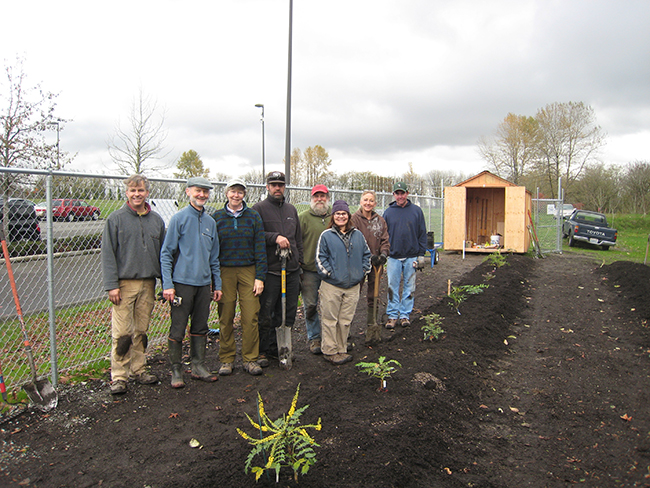Arboretum at South Seattle College’s Pacific Northwest Mahonia Evaluation Project

A short walk to the south end of the South Seattle College campus and you’ll find a field of plants surrounded by a chain-link fence, with signs reading, “WSDA Department of Agriculture Research Plot, Authorized Personnel Only!”
The brainchild of South Landscape Horticulture instructor, Randall Hitchin, the area makes up the Pacific Northwest Mahonia Evaluation Project. The project’s aims to evaluate the landscape value of around 90 species and cultivars of the plant genus “Mahonia.” While most people know Mahonia as an Oregon-grape, the genus includes about 100 species native to western North America and East Asia. Only three are native to Washington state. Members of the East Asian group typically inhabit moist, shaded forest environments while species of the North American group are generally found in drier and more open habitats, including forest edge, chaparral and desert. Most of the Mahoniaspecies and cultivars are unknown in Pacific Northwest gardens, but they show great potential for the region’s nursery and landscape industry.
This research is supported by a grant from the Washington State Department of Agriculture (WSDA)—Nursery Research Funding, in collaboration with South’s Landscape Horticulture program.
Current members of the Mahonia team include; Randall Hitchin, project leader; Van Bobbitt, retired Landscape Horticulture instructor; Walt Bubelis, retired Edmonds Community College Horticulture instructor; Dr. Ross Bayton, plant taxonomist and garden writer; Nicole Scott, student intern; and Brad Finn, student intern.
In addition, the Mahonia project is indebted to the many volunteers who have helped with planting, maintenance, data collection and more. Volunteers have included current and former Landscape Horticulture students, WSU Master Gardeners, and teams from Amazon, Microsoft, and the University of Washington.
Interested in volunteering? We need your help!
Learn more about the Pacific Northwest Mahonia Evaluation Project and find dates to upcoming volunteer work parties.